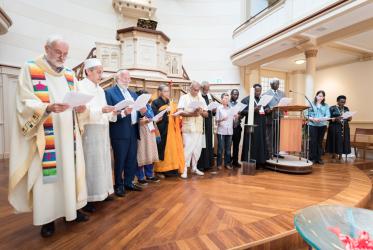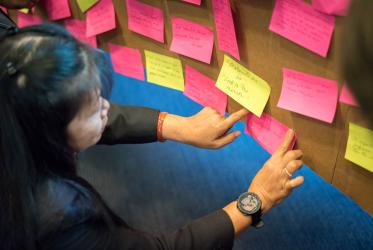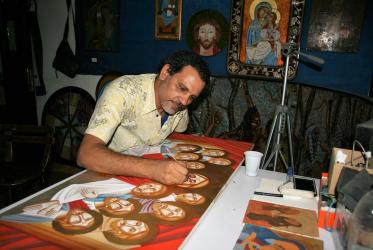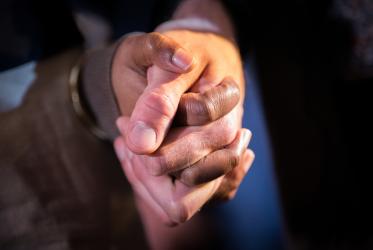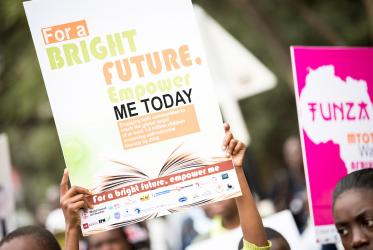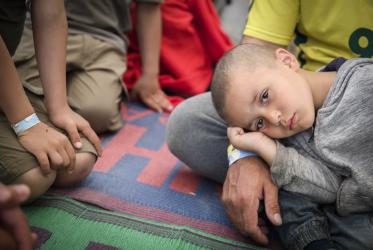Displaying 161 - 180 of 551
Working toward an AIDS-free generation
26 July 2018
Building bridges of faith in the HIV response
25 July 2018
Building Bridges in the global HIV response
25 July 2018
#WCC70: A prayer about health and healing
20 July 2018
WCC mourns passing of Calle Almedal
11 June 2018
WCC promotes Global Day of Prayer to End Famine
06 June 2018
WCC calls for Global Day of Prayer to End Famine
31 May 2018
At CSW62, “stories are the heartbeat”
21 March 2018
Not just numbers, displaced people need to share their stories
01 February 2018



